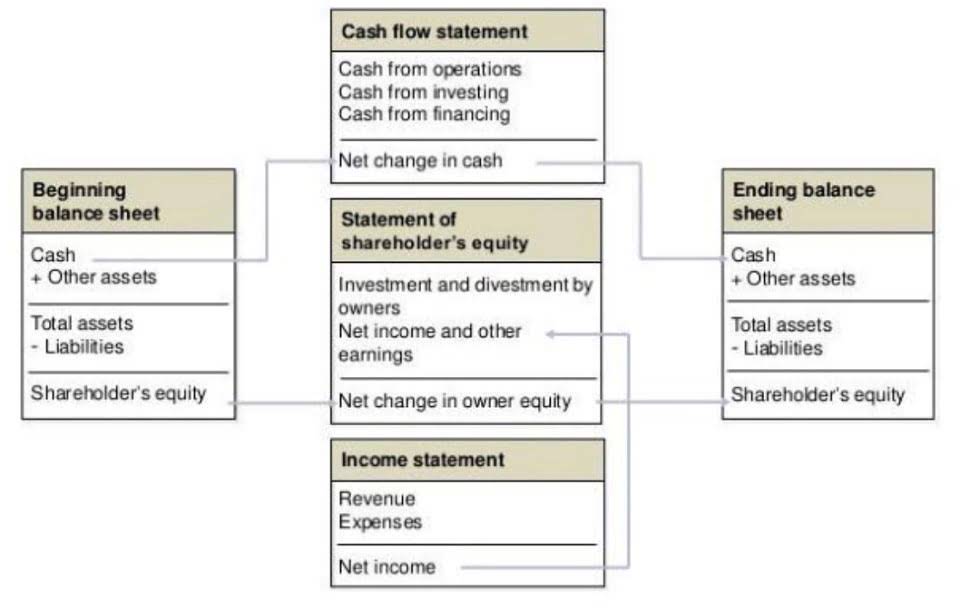
Donna has a Bachelor of Science Degree in accounting basics Business Administration with major in Accounting and Finance (BSc Hons) and ACCA certified to Level 2. Effective bookkeeping is the backbone of any successful business. By keeping accurate and organized records, you provide a solid foundation for informed decision-making and strategic planning. Embrace the journey, and let Profit Leap be your partner in achieving bookkeeping excellence.
Accrual Basis Accounting

You will dive into the accounting concepts and terms that will provide the foundation for the next three courses. You will learn how to work your way through the accounting cycle and be able to read and produce key financial statements. Liabilities are what the company owes like what they owe to their suppliers, bank and business loans, mortgages, and any other debt on the books. The liability accounts on a balance sheet include both current and long-term liabilities. Accounts payable are usually what the business owes to its suppliers, credit cards, and bank loans.
- Assets, liabilities, and equity make up the accounts that compose the company’s balance sheet.
- The general ledger is the master record of all your financial transactions.
- Professional growth is a natural outcome of continuous learning.
- The course also addresses topics such as depreciation, payroll accounting, petty cash management, and bank reconciliation.
- To start with you will learn about the fundamental difference between bookkeeping and accounting.
- Your electronic Certificate will be added to your Accomplishments page – from there, you can print your Certificate or add it to your LinkedIn profile.
Take your learning further

The cash you have in your accounts plus all of your assets and investments are known in business finance terms as capital. In the event that you may have a loan that comes due or you need to record a non-cash transaction, your Accountant will correct your books with an adjusting journal entry. Accounts payable relates to money that you owe supliers and creditors. These are accounts you’re expected to pay for purchases owed, and they are considered liabilities. OpenLearn works with other organisations by providing free courses and resources that support our mission of opening up educational opportunities to more people in more places. Knowing these nine bookkeeping basics is essential for any bookkeeper to perform their job well.
Key Takeaways
- The first three basics of bookkeeping discussed above are what you’ll find in the Balance Sheet.
- By analyzing past financial data, they can make informed decisions about investments, growth opportunities, and risk management.
- These are funds you’re expecting to receive for work performed or products sold, and they are considered assets.
- Such integration saves time, cuts costs, and enhances user experience.
- It tells you how much money you have in the bank, but it doesn’t account for where your money’s going in the future.
It is important to Car Dealership Accounting have a proper way to store all documents like invoices and receipts. Other businesses opt for document storage systems like Easydocs, Dropbox, or Google Drive, whilst some use accounting packages that have cloud storage. The managed records will save you trouble in the future for tax purposes or audits. Aside from the Balance Sheet, bookkeepers also create the Income Statement.
- Furthermore, knowing how much has been spent in which category helps in easy tax filing.
- In the Balance Sheet, the equity accounts cover all the claims they have over the company.
- By keeping accurate and organized records, you provide a solid foundation for informed decision-making and strategic planning.
- You also have to decide, as a new business owner, if you are going to use single-entry or double-entry bookkeeping.
The first three basics of bookkeeping discussed above are what you’ll find in the Balance Sheet. To balance the books, you need to carefully monitor the assets, liabilities, and equity. At the end of the appropriate period, the accountant takes over and analyzes, reviews, interprets and reports financial retained earnings balance sheet information for the business firm. The accountant also prepares year-end financial statements and the proper accounts for the firm.
- This applies to computers, furniture, machinery and equipment used to start and run a small business.
- Aside from the Balance Sheet, bookkeepers also create the Income Statement.
- As a book-keeper, the owner’s role would involve the following tasks.
- You will dive into the accounting concepts and terms that will provide the foundation for the next three courses.
- Very small firms may use a basic spreadsheet, like Microsoft Excel.
- Get personalized course recommendations, track subjects and courses with reminders, and more.
